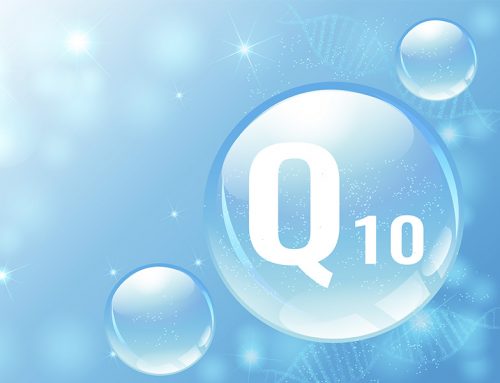
2016 is the time to make taking a Coenzyme Q10 supplement one of your New Year’s resolutions. If you are already taking a Coenzyme Q10 supplement, then 2016 may be the time to check to see if you are getting a supplement with well-documented heart health effects.
Every January 1st, we get to start over. Whatever the mistakes are that we made in 2015, we do not have to repeat them in 2016. We ask ourselves, what can we do better in the New Year?
Typical New Year’s resolutions
Many people will be starting 2016 with a list of resolutions that look something like this:
- Exercise more
- Eat healthier
- Lose weight
- Get blood pressure under control
Q10 can help with the resolutions
Those are do-able New Year’s resolutions. They are resolutions that most of us can keep. I would add one more resolution to the list:
- Take a daily Coenzyme Q10 supplement
Q10 and exercise
Coenzyme Q10 in its ubiquinone form is an essential bio-nutrient that plays a vital role in the production of energy in the cells. As we get older, we feel a decline in the amount of energy that we have. That decline in energy could well be related to the lesser availability of Coenzyme Q10 in our cells and tissues.
Q10 and nutrition
As we age, our bodies produce less Coenzyme Q10, and the amount of Q10 that we can absorb from the foods that we eat is not adequate, in many cases, to make up the difference. A well-absorbed Q10 supplement can fill the gap.
Q10 and weight loss
Nothing in the research literature indicates that taking a daily Q10 supplement will help you lose weight. Losing weight is still a matter of self-discipline, wise food choices, portion control, and exercise. But, limiting the size of the portions you eat will necessarily limit the amount of Q10 that you can get in your food. Portion control is an argument for taking a daily Coenzyme Q10 supplement.
Dr. William Judy of the SIBR Research Institute tells me that overweight individuals do tend to have low plasma Q10 levels. Their total Q10 per kilogram of body weight is lower than the total Q10 per kilogram of body weight in an individual who is not overweight. So, supplementation with a well-absorbed ubiquinone Q10 is correspondingly more important for people who are overweight.
Q10 and high blood pressure
Ah, here, there is good research evidence in favor of taking a daily Coenzyme Q10 supplement. In 2007, Professor Franklin L. Rosenfeldt and his colleagues at Albert Hospital in Australia did a meta-analysis of 12 clinical trials, enrolling a total of 362 patients with high blood pressure. They found that supplemental Coenzyme Q10 significantly reduced systolic blood pressure and diastolic blood pressure.
Q10 and heart health
Whenever he speaks to physicians and cardiologists, Dr. William Judy emphasizes the following points about nutritional supplementation with a good ubiquinone Q10 preparation.
- Research shows that higher levels of Q10 in the blood are more clinically effective than low blood Q10 levels are (2).
- Research shows that Q10 supplementation with a good ubiquinone Q10 supplement can reduce the severity of congestive heart failure (8,9).
- Research shows that Q10 supplementation reduces the incidence and intensity of cardiac arrhythmias (7).
- Research shows that Q10 supplementation protects the heart muscle after a heart attack (7).
- Research shows that Q10 supplementation will reduce the adverse effects of taking statin medications (3).
Synthesis of Q10 in the body
The human body synthesizes Coenzyme Q10 in the form of ubiquinone in the outer membranes of the mitochondria in the cells all over the body. The body’s own synthesis of Q10 peaks about age 21 years, and then it slowly declines from then on. The body of an elderly man, aged 65 – 70 years, most likely produces only half of the Coenzyme Q10 that it produced when he was in his early 20’s.
Q10 and absorption
The Coenzyme Q10 molecules are fat-soluble molecules that are known to be difficult to absorb. The best absorbed Q10 is dissolved together with other lipids such as soybean oil or palm oil inside gelatin capsules. The best absorbed Q10 is formulated in a way that keeps it from re-forming into crystals inside the capsules.
Q10 and the quality of the preparation
It is not the case that all Coenzyme Q10 product types are equally well absorbed. Far from it. Only the crystal-free Q10 products dissolved into lipids that stabilize and facilitate the absorption of the Q10 will give a good absorption percentage. Dr. Judy says that it is important in the process of making Q10 softgels that the Q10 mixture be heated to above body temperature to dissolve the Q10 crystals, and, moreover, the formulation must have a stabilizer in it so that the Q10 will not re-crystalize when the capsules are cooled to room temperature.
Which Coenzyme Q10 product to choose?
It is certainly the case that there is great variability in the price of Coenzyme Q10 supplements on the market in the US. Should you take a chance on a lower priced Q10 product?
That is your decision. Maybe you will get a good enough absorption and a good enough health effect with a lower priced product. And quite possibly you won’t. My thought is: why take a chance?
Coenzyme Q10 and medicinal quality production
Here are some of the factors that make a Coenzyme Q10 product cost a little more than the average product.
- Using Pharmaceutical Grade raw material
- Following Good Manufacturing Practices
- Preventing the Q10 from re-forming into crystals by pre-heating the raw material
- Putting the Q10 molecules into vegetable oils inside gelatin capsules
- Maintaining a Drug Master File
- Documenting the safety, the absorption, and the health effects in gold-standard clinical studies
Coenzyme Q10 and documentation
It may cost a bit more, but the safest thing to do is to purchase a Coenzyme Q10 supplement that has been produced with the same care that prescription drugs are produced and to purchase a Coenzyme Q10 supplement that has been tested in randomized, double-blind, placebo-controlled clinical trials.
If taking a Coenzyme Q10 supplement is worth doing – and it is – then it is worth doing right.
Make sure that you get a Coenzyme Q10 supplement that has documented heart health effects like the effects shown in the results of these studies:
Sources:
- Alehagen, U., Johansson, P., Björnstedt, M., Rosén, A., & Dahlström, U. (2013). Cardiovascular mortality and N-terminal-proBNP reduced after combined selenium and coenzyme Q10 supplementation: a 5-year prospective randomized double-blind placebo-controlled trial among elderly Swedish citizens. International Journal of Cardiology, 167(5), 1860-1866.
- Folkers K, Vadhanavikit S, Mortensen SA. Biochemical rationale and myocardial tissue data on the effective therapy of cardiomyopathy with coenzyme Q10. Proc Natl Acad Sci U S A 1985;82:901-4.
- Folkers K, Langsjoen P, Willis R, Richardson P, Xia LJ, Ye CQ, et al. Lovastatin decreases coenzyme Q levels in humans. Proc Natl Acad Sci U S A 1990;87:8931-4.
- Golomb, B. A., Allison, M., Koperski, S., Koslik, H. J., Devaraj, S., & Ritchie, J. B. (2014). Coenzyme Q10 benefits symptoms in Gulf War veterans: results of a randomized double-blind study. Neural Computation, 26(11), 2594-2651.
- Judy, W.V., Stogsdill, W.W., Judy, D.S., & Judy, J.S. (2007). Coenzyme Q10: Facts or Fabrications? Natural Products Insider. Retrieved from http://www.zmc-usa.com/docs/CoQ10_Facts_or_Fabrications.pdf.
- Kalen A, Appelkvist EL, Dallner G. Age-related changes in the lipid compositions of rat and human tissues. Lipids. 1989;24(7):579–584.
- Morisco, C., Trimarco, B., & Condorelli, M. (1993). Effect of coenzyme Q10 therapy in patients with congestive heart failure: a long-term multicenter randomized study. The Clinical Investigator, 71(8 Suppl), S134-S136.
- Mortensen, S. A., Rosenfeldt, F., Kumar, A., Dolliner, P., Filipiak, K. J., Pella, D., & … Littarru, G. P. (2014). The effect of coenzyme Q10 on morbidity and mortality in chronic heart failure: results from Q-SYMBIO: a randomized double-blind trial. JACC. Heart Failure, 2(6), 641-649.
- Mortensen, S. A. (2015). Coenzyme Q10: Will This Natural Substance Become a Guideline-Directed Adjunctive Therapy in Heart Failure? JACC. Heart Failure, 3(3), 270-271. doi:10.1016/j.jchf.2014.12.006
- Singh, R. B., Niaz, M. A., Kumar, A., Sindberg, C. D., Moesgaard, S., & Littarru, G. P. (2005). Effect on absorption and oxidative stress of different oral Coenzyme Q10 dosages and intake strategy in healthy men. Biofactors (Oxford, England), 25(1-4), 219-224.
- Weber C, Bysted A, Hølmer G. The Coenzyme Q10 content of the average Danish diet. Int J Vitam Nutr Res 1997;67:123-9.










Leave A Comment